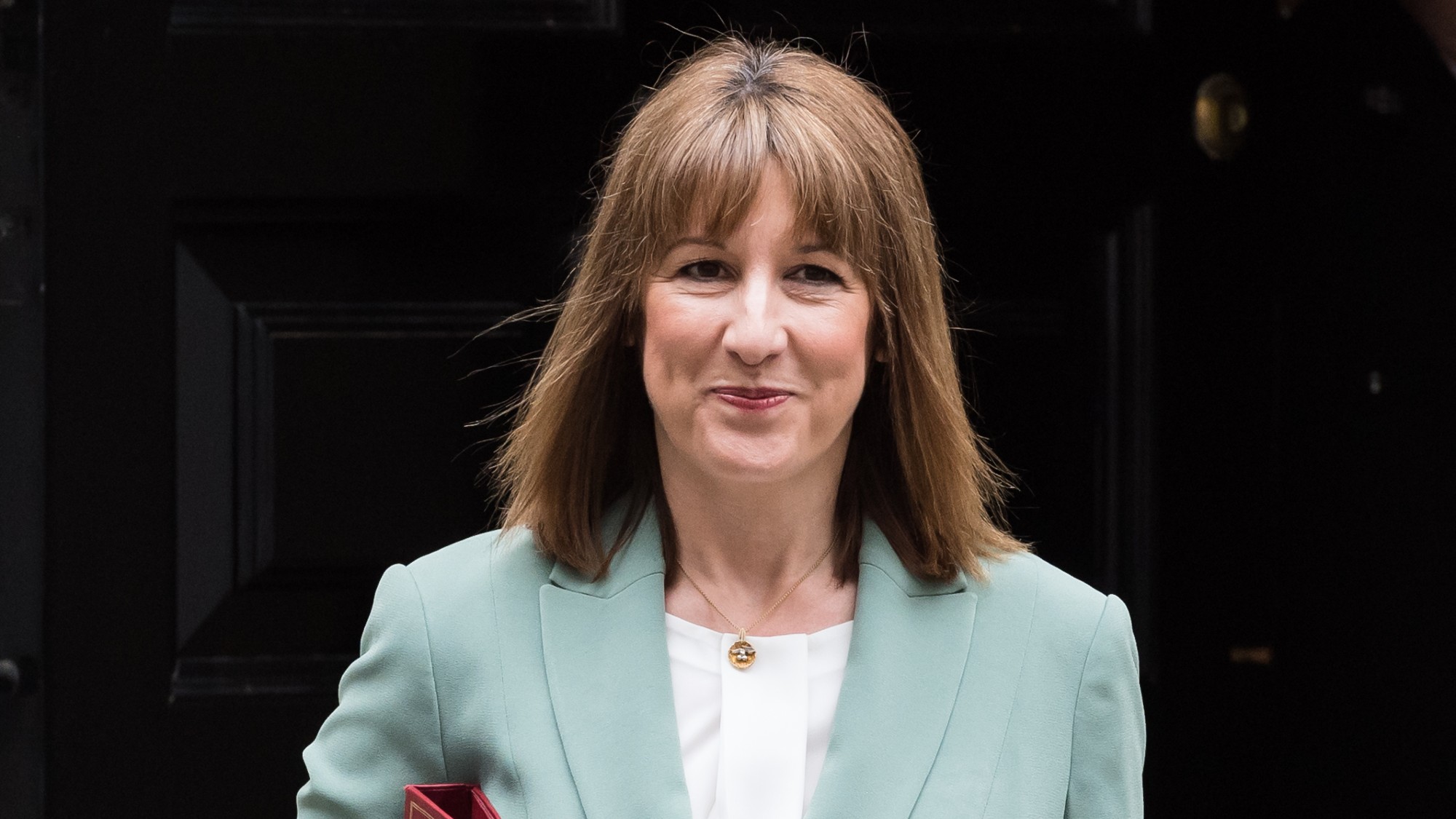The most secretive financial systems in the world
Report calls for sanctions as UK shoots up world rankings of tax havens

A free daily email with the biggest news stories of the day – and the best features from TheWeek.com
You are now subscribed
Your newsletter sign-up was successful
The UK has climbed the world ranking of tax havens and is nearing the top 10 most secretive financial systems.
The Tax Justice Network (TJN) said the UK had become a more desirable place for businesses and super-rich individuals to hide their finances from the law, raising serious concerns about Britain’s post-Brexit strategy.
Why has the UK climbed the rankings?
The Week
Escape your echo chamber. Get the facts behind the news, plus analysis from multiple perspectives.

Sign up for The Week's Free Newsletters
From our morning news briefing to a weekly Good News Newsletter, get the best of The Week delivered directly to your inbox.
From our morning news briefing to a weekly Good News Newsletter, get the best of The Week delivered directly to your inbox.
The TJN’s Financial Secrecy Index ranks countries on the size and secretiveness of their financial sectors every two years.
New rankings published this week show the UK is now 12th out of 133 countries, having shot up from its former ranking of 23rd.
Countries on the index decreased their secrecy scores by an average of three marks out of 100, while the UK increased its rating by four marks. It was the highest increase of any country.
The change was largely down to the “network of satellite jurisdictions to which the UK outsources some of its financial secrecy activity”, says TJN.
A free daily email with the biggest news stories of the day – and the best features from TheWeek.com
Because the UK’s “spider’s web” of regulatory control includes some of the highest ranking jurisdictions on the index, including the Cayman Islands, its ranking worsened.
And while the UK has become more secretive, other countries have have become more open. Many have made reforms with transparency in mind, including automatic sharing of information about non-resident taxpayers.
The TJN is calling for sanctions against countries including the UK, US and the Cayman Islands for “backsliding” on transparency since 2018.
TJN’s director and founder, John Christensen, said the UK’s worsening performance prompted concern about how it would operate after leaving the EU.
“The UK showed the world true leadership in 2016 by being the first country to adopt a public beneficial ownership register [for domestic companies] – now that progress has been thrown in reverse,” he said.
“The UK’s surge up the financial secrecy index raises serious concerns about the UK’s post-Brexit strategy to turn the City of London into a ‘Singapore-on-Thames’,” he added.
There are fears among some who think the City could become a low-tax, lightly regulated hub for individuals and business.
A Treasury spokesperson told The Guardian there had not been substantial changes to its corporate reporting rules that warranted changes to its ranking.
“We do not therefore recognise the basis for the Tax Justice Network’s assessment. We have been, and will continue to be, at the forefront of the global drive for greater tax transparency.”–––––––––––––––––––––––––––––––For a round-up of the most important stories from around the world - and a concise, refreshing and balanced take on the week’s news agenda - try The Week magazine. Start your trial subscription today –––––––––––––––––––––––––––––––
How did other countries fare?
The US stayed in second place in the rankings, largely because of a new law in New Hampshire that permits the establishing of non-charitable private foundations without the need for disclosure.
Clark Gascoigne, the interim executive director of the US-based Financial Accountability and Corporate Transparency (FACT) Coalition, said: “As the data clearly demonstrates, financial secrecy remains a major problem in the US – enabling crimes like human trafficking, tax evasion, and corruption both at home and abroad.”
Germany dramatically improved its place in the rankings from seventh in 2018 to 14th on the 2020 index.
The fall was down to Germany making several improvements to beneficial ownership registration requirements. New rules require companies, partnerships and foreign trusts to disclose who their beneficial owners are.
TJN’s Financial Secrecy Index 2020 rankings (2018 ranking in brackets)
1. Cayman Islands (3)
2. US (2)
3. Switzerland (1)
4. Hong Kong (4)
5. Singapore (5)
6. Luxembourg (6)
7. Japan (13)
8. Netherlands (14)
9. British Virgin Islands (16)
10. United Arab Emirates (9)
11. Guernsey (10)
12. United Kingdom (23)
-
 Health insurance: Premiums soar as ACA subsidies end
Health insurance: Premiums soar as ACA subsidies endFeature 1.4 million people have dropped coverage
-
 Anthropic: AI triggers the ‘SaaSpocalypse’
Anthropic: AI triggers the ‘SaaSpocalypse’Feature A grim reaper for software services?
-
 NIH director Bhattacharya tapped as acting CDC head
NIH director Bhattacharya tapped as acting CDC headSpeed Read Jay Bhattacharya, a critic of the CDC’s Covid-19 response, will now lead the Centers for Disease Control and Prevention
-
 Autumn Budget: will Rachel Reeves raid the rich?
Autumn Budget: will Rachel Reeves raid the rich?Talking Point To fill Britain’s financial black hole, the Chancellor will have to consider everything – except an income tax rise
-
 Pros and cons of a wealth tax
Pros and cons of a wealth taxPros and Cons Raising revenue and tackling inequality vs. the risk of capital flight and reduced competitiveness
-
 Is Rachel Reeves going soft on non-doms?
Is Rachel Reeves going soft on non-doms?Today's Big Question Chancellor is reportedly considering reversing controversial 40% inheritance tax on global assets of non-doms, after allegations of 'exodus' of rich people
-
 Foreigners in Spain facing a 100% tax on homes as the country battles a housing crisis
Foreigners in Spain facing a 100% tax on homes as the country battles a housing crisisUnder the Radar The goal is to provide 'more housing, better regulation and greater aid,' said Spain's prime minister
-
 What's next for electric vehicles under Trump?
What's next for electric vehicles under Trump?Today's Big Question And what does that mean for Tesla's Elon Musk?
-
 The row over UK maternity pay
The row over UK maternity payTalking Points Tory leadership hopeful Kemi Badenoch implied that taxpayer-funded benefit was 'excessive' and called for 'greater responsibility'
-
 Will the UK economy bounce back in 2024?
Will the UK economy bounce back in 2024?Today's Big Question Fears of recession follow warning that the West is 'sleepwalking into economic catastrophe'
-
 America's most in-demand job
America's most in-demand jobFeature And more of the week's best financial insight